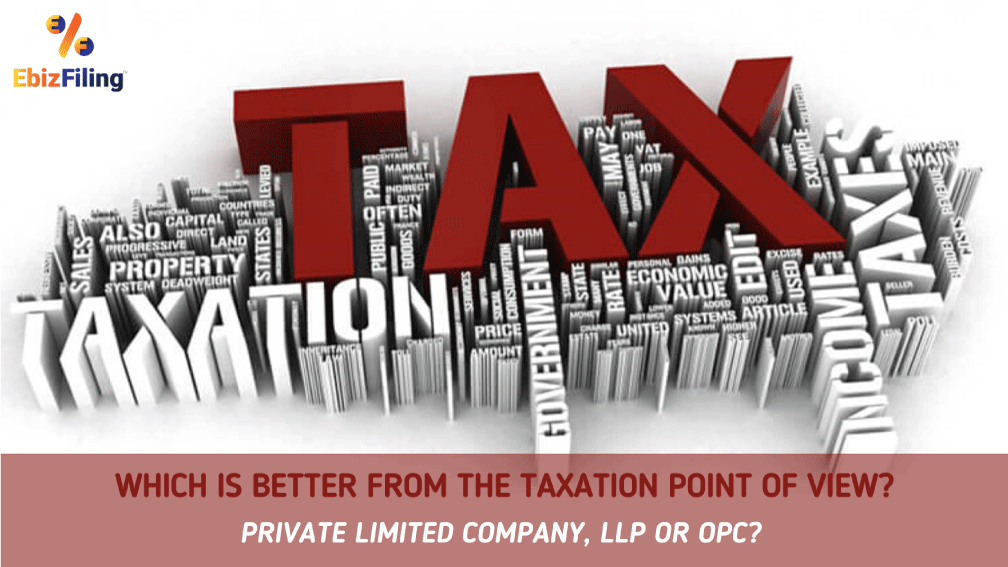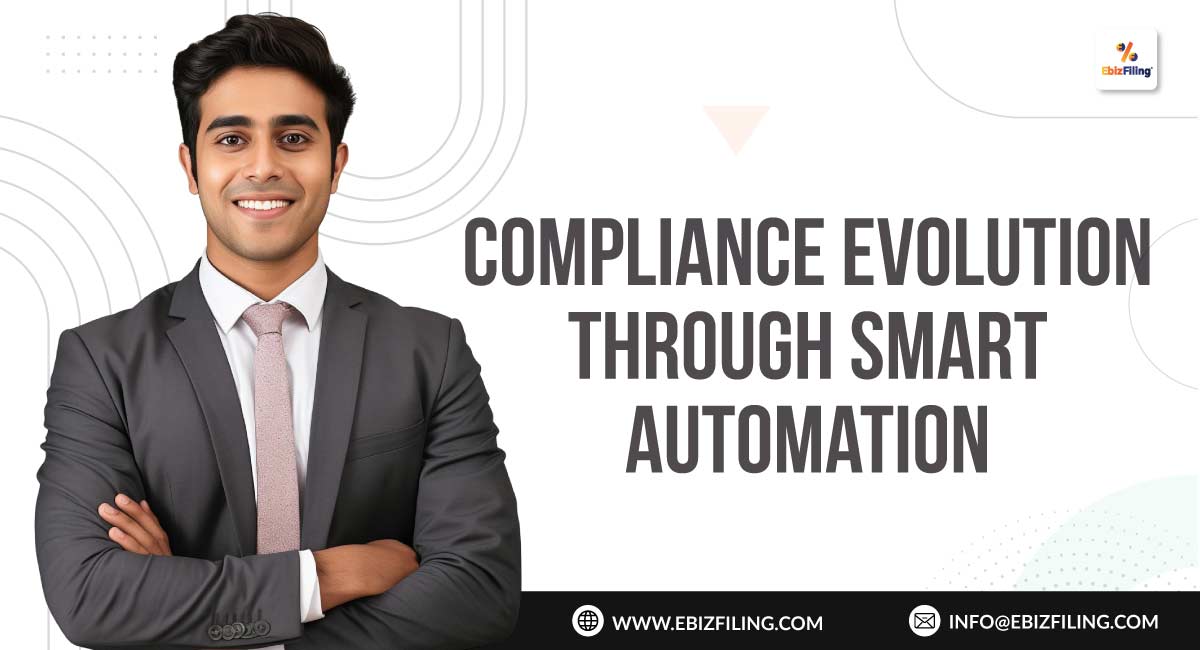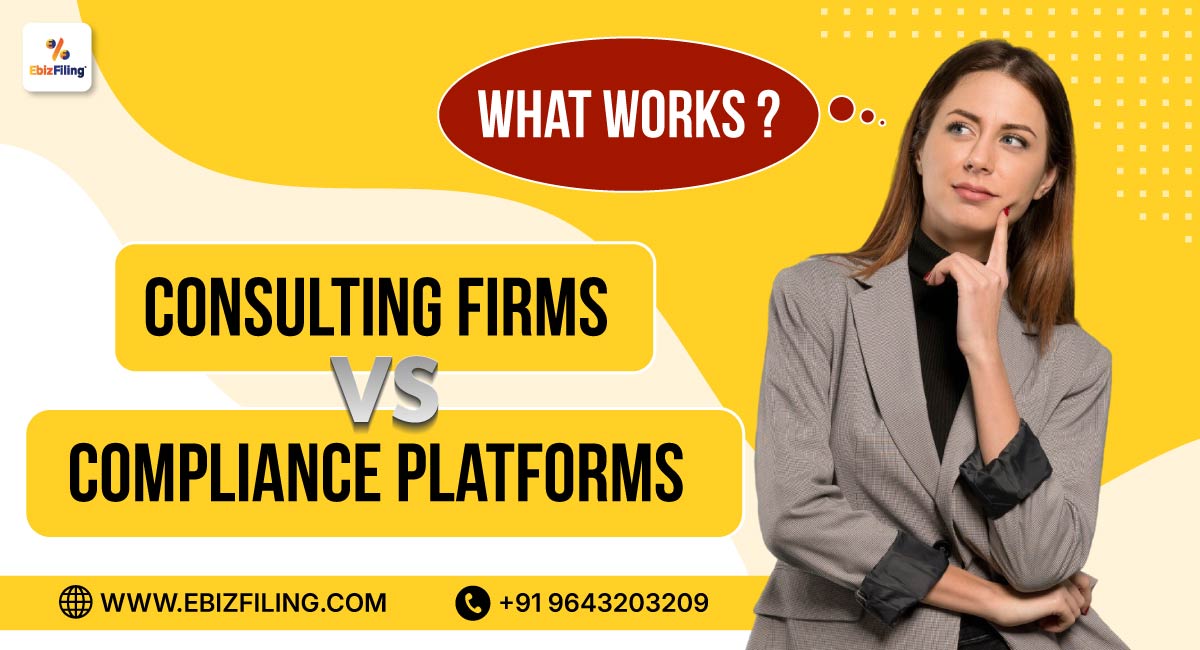Key Taxation Comparison Table between Pvt ltd company vs LLP vs OPC
| Particulars | Private Limited Company | LLP | One Person Company (OPC) |
| Basic Tax Rate | 22% (New Regime)* | 30% | 22% (New Regime)* |
| Surcharge (based on income) | Applicable | Applicable | Applicable |
| MAT (Minimum Alternate Tax) | Applicable @15% | Not Applicable | Applicable @15% |
| Dividend Distribution Tax (DDT) | Not applicable (post-2020) | Not applicable | Not applicable |
| Presumptive Taxation | Not applicable | Applicable for small LLPs | Not applicable |
| ITR Filing | ITR-6 | ITR-5 | ITR-6 |
| Tax Audit Threshold | Rs. 1 crore / 10 crores* | Rs. 1 crore / 10 crores* | Rs. 1 crore / 10 crores* |
You can validate it from incometax.gov.in
Private Limited Company: Why It May Be Tax-Efficient
- Lower Tax Rate Options: Private Limited Companies benefit from concessional tax rates like 22% under Section 115BAA and 15% under Section 115BAB for new manufacturing companies. This reduces the effective tax burden significantly when compared to traditional slabs.
- Higher Deductions: Eligible for a wide range of deductions such as expenses on R&D, depreciation, employee benefits, and startup-specific deductions under Section 80-IAC.
- GST Input: Structured accounting enables seamless GST input credit claims.
- Supports Growth: Reinvesting profits back into the company instead of distributing dividends results in tax savings and allows for expansion.
- Compliance Overhead: While compliance is higher, the tax benefits and investor preference outweigh the administrative load for high-growth firms.
Best For: Funded startups, tech firms, or export-based businesses.
LLP: What Makes It a Tax-Friendly Option
- Flat 30% Rate: LLPs are taxed at a flat rate of 30% regardless of income level. While this may seem higher, it simplifies planning and is predictable.
- No MAT: Unlike companies, LLPs are not subject to Minimum Alternate Tax, which can be a significant saving for firms with high deductions or exemptions.
- No DDT: Profits can be distributed to partners without additional tax, unlike dividends, which may attract tax in some structures.
- Presumptive Taxation: Under Section 44ADA, LLPs offering professional services can opt for presumptive taxation if turnover is within limits.
- No Double Taxation: Tax is only levied at the LLP level. Partners do not pay additional tax on their share of profits.
Best For: Service providers, consultants, or firms preferring ease and flexibility.
OPC: How Is Taxation Different for an OPC?
- 22% Tax Option: OPCs, like Pvt Ltd Companies, can opt for the concessional 22% tax rate under Section 115BAA.
- Taxation at Entity Level: Since it operates like a company, income is taxed at the corporate level and not as personal income.
- MAT Applies: If any exemptions or incentives are availed, MAT at 15% could apply, which may offset the benefits.
- No Partner Mechanism: As it’s owned by one person, there is no profit-sharing, and thus no flexibility in planning distributions.
- Practical Double Taxation: If the owner withdraws money in the form of salary or dividend, it gets taxed again in personal hands.
Best For: Solo founders wanting limited liability with company status.
What Saves More Tax Pvt Ltd company vs LLP vs OPC?
| Criteria | Private Limited Company | LLP | OPC |
| Base Tax Rate | 15% / 22% (if conditions met) | Flat 30% | 22% |
| MAT Liability | Yes, @15% | No | Yes, @15% |
| Profit Distribution Tax | None | None | None |
| Flexibility in Deductions | High | Limited | Moderate |
| Double Taxation Possibility | Moderate (if dividends are drawn) | None | High (salary + company tax) |
Choose Pvt Ltd for growth and reinvestment, LLP for simple low-cost tax, OPC for solo ventures with limited plans.
Real-Life Example
A tech firm in Bengaluru started as an LLP to benefit from simple compliance. When it reached a funding stage, it converted to a Pvt Ltd Company to avail of the 22% concessional tax and attract investors. Since profits were reinvested, the Pvt Ltd tax regime saved them more than the LLP’s flat 30% tax.
Conclusion
Choose a Private Limited Company if you’re aiming for tax-efficient growth and attracting investors. An LLP is ideal for professionals seeking simple taxation with lower compliance. Opt for an OPC if you’re a solo founder, but keep in mind its tax limitations. Always compare your income structure, reinvestment plans, and control preferences before choosing.
Suggested Read :
Tax Rate on Domestic Company in India
Taxes & Compliances for Pvt Ltd Company
OPC Compliance After Incorporation















Hello Sir,
You can form a One Person Company in which you can hold 100% ownership of the company. You can be a shareholder of the company who holds 100% ownership. For the other 2-3 members, you can appoint them as the Directors of a company. Please contact us at +919643203209 / mail us at info@ebizfiling.com, if you need any additional information or assistance.
Thanks for connecting.